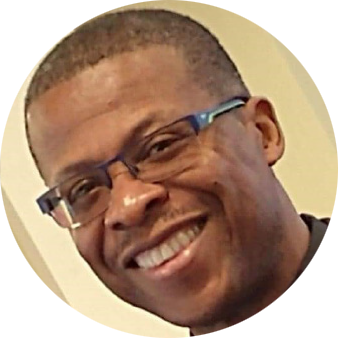Jesus Heals a Crippled Woman on the Sabbath Luke 13

By Agustus Henry
ONE Sabbath day Jesus was teaching in one of the synagogues, and a woman was there who had been crippled by a spirit for eighteen years. She was bent over and could not straighten up at all. When Jesus saw her, he called her forward and said to her, “Woman, you are set free from your infirmity.” Then he put his hands on her, and immediately she straightened up and praised God (Versus 10 – 13).
Imagine after eighteen years – she could hardly remember any other way of seeing the world. On this particular Sabbath, there was an excitement at the synagogue where she regularly went to worship. A Galilean preacher and prophet, Jesus of Nazareth, had arrived in town and would be teaching there. When she entered the synagogue, the place was abuzz. As Jesus began to teach, however, the room was hushed. Moments later, his words turned from teaching to concern. He had caught her eye. “Come here,” he said to her. She slowly made her way to the front of the assembly. What happened next amazed the whole congregation. “Woman, you are set free from your ailment” he uttered. When Jesus spoke those words and put his hands on her broken, bent body, she felt power surge through her. Without hesitation, she straightened her once crooked back. She stood tall and praised her God.
Getting the priority between righteousness and religion wrong
You see, there are many people who would never praise God for blessing you; and they may be members of the very church you attend. “Indignant because Jesus had healed on the Sabbath, the synagogue leader said to the people, ‘There are six days for work. So, come and be healed on those days, not on the Sabbath’” (Verse 14) they bellowed. Those Rabis actually believed that the order-of-service, decorum and keeping the Sabbath was more important than relieving that poor woman of her burden. Under close examination, one realizes that righteousness and love took a back seat to their religion.
The Jewish Synagogue Sabbath service was very scripted, and had little space for unplanned activities. The rituals were similar to what one sees in a typical modern church service. The presiding personnel would ascend the platform along with prayers or singing as service began. There were prescribed times allotted for prayers, discussions and reading of the scripture. The message to be delivered was pre-chosen by the head of the synagogue. And, as we can tell from Luke 13, there was no place for unscheduled activity during that service – not even time for unplanned good deeds (Matt. 12:12). Is it possible therefore, like those Jewish leaders, that we place our religious practices above love for people?
Religious rituals are more important only when it benefits us or our family
Rabis were the typical heads-of-synagogue. Could you imagine that one was suffering with leukemia and had the opportunity to get healed on that Sabbath; or his little daughter was stricken with leprosy with the same chance of healing on the Sabbath? Jesus took that argument even further, and suggested that they would ignore the very importance of the Sabbath, synagogue and service if one of their animals was hurt.
The Lord answered them, “You hypocrites! Doesn’t each of you on the Sabbath untie your ox or donkey from the stall and lead it out to give it water? Then should not this woman, a daughter of Abraham, whom Satan has kept bound for eighteen long years, be set free on the Sabbath day from what bound her?” (Luke 13:15).
Now, Jesus was not suggesting that church, rituals and religion are unimportant; he is affirming that loving people and doing good for them supersedes love of religious rituals – and that our needs are just as important as the needs of others. The same way we conflate the differences between righteousness and religion, we confuse religion with spirituality.
True religion demonstrates love of Jesus and spirituality (James 1:27)
Finally, while rituals and good worships habits have their purpose in the lives of Christians, the growth of a Christian is measured in their spiritual connection and walk with God (John 4: 24). This woman went to service for 18 years, carrying the same cripple back with her. It was not until she met Jesus that things turned around for her. We frequently get stuck in the belief that our physical problem has only tangible, material solutions and that Physical action is all it takes. However, no amount of going to church, singing in the choir, keeping the Sabbath or tithing would remedy one ounce of our problem, whether that problem is physical or spiritual. Jesus must be involved in the process. It must be a spiritual undertaking.




![Simón Bolívar - Liberator of the Americas [Photo credit: Venezuelan Embassy]](https://thevoiceslu.com/wp-content/uploads/2025/12/Simon-Bolivar-feat-2-380x250.jpg)



